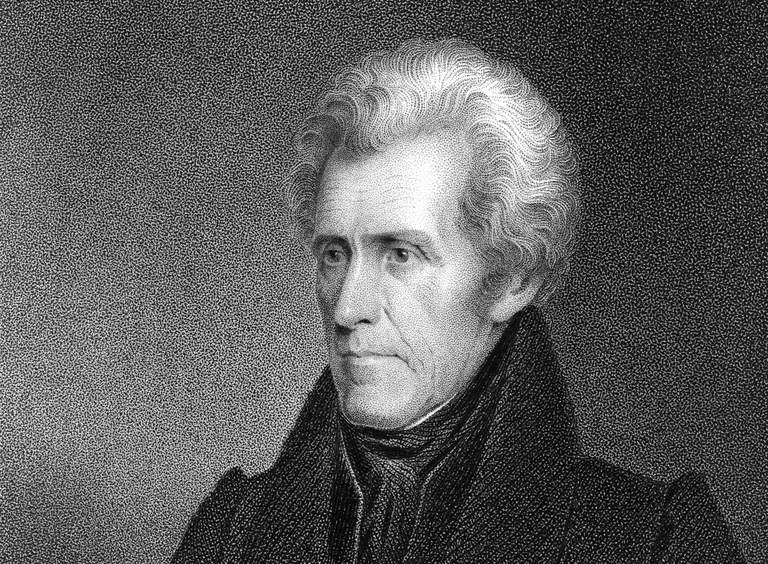
26 Jan President Andrew Jackson and what I’ve learned since growing up.

Andrew Jackson- being the 7th President of the United States, left a legacy that has been deliberated since the Old Hickory political lifeline. Acknowledged as an aggressive, strong-willed, and contentious leader, Jackson’s faultfinders pinpoint his punitive handling of the enslaved laborers. He is also credited with the forceful exclusion of the Native Americans/ Indians from their original homeland. These are some of the details that categorized him as offensive. His proponents, however, quote Jackson as a hero who successfully challenged various political foundations and also shepherding an era of explorations and expansion. Although he was regarded as the People’s President, Jackson’s legacy was tainted by some of his practices and acts. Should Jackson be celebrated or be reviled?
As the POTUS, Jackson was no exception when applying his acts/ policies according to The Hermitage description. Andrew Jackson made several radical political antagonists. His dedication and promises to the people ensured that he serves his second term between 1829 to 1837. Although Jackson is known for immense policies, there existed four significant programs that defined his tenure. He had the drive to flush out corruption, resolve the Indian issues within various states, assisted in the Nullification Crisis, and also the desire to eliminating the United States Second Bank. The Second Bank disbandment was supposedly Jacksons greatest accomplishment that involved a battle with a corporation that acted as a federally sponsored monopoly. Jackson viewed the bank as very corrupt and an institution that wielded more power over the United States economy.
Supporters of Jackson praised him for reforming the United States currency system by signing the bill that prevented the application of a paper currency system in purchasing vast acres of land. The paper currency system made land prices go up hence preventing middle-class Americans from purchasing land. To prevent this, Jackson, through the Specie Circular, ensured that federal land and property be bought using gold/ silver except if the land was purchased straight from/ by the definite sellers. However, well-intentioned, the Specie Circular’s lack of regulation on several state/ federal banks led to a cataclysmic economic meltdown that significantly affected Martin Van Buren’s presidency.
Just like most, Jackson had glaring defects as the President. Andrew Jackson was a stronger enthusiast of slavery. During his lifeline, Jackson became wealthy thanks- to the wealth amassed from slave ownership. Slaves grew cotton, tendered his mansion, and at the same time assisted him to gain a position in the South. He had over 160 slaves whom he purchased/ sold. Some were also brought to the White House to toil for the President. Jackson was regarded as a harsh slave owner who brutally whipped his slaves publicly. He was also known for pursuing slaves who escaped from bondage and chaining them once he caught them. President Jackson was also instrumental in opposing the acts/ policies that aimed at outlawing slavery in the United States Western territories during its expansion. When slave abolitionists tried to deliver anti-slave messages to the Southern states, Jackson (during his tenure) opposed them and even labeled them as monsters who only wanted to ruin their lives. Notwithstanding his strong support of slavery, and his contribution towards the slave trade, Jackson’s pro-slavery standpoint has for long been softened. Various biographers and historians are to blame due to their reluctance to appropriately scrutinize Jackson’s legacy and contribution to the slave trade.
Jackson was also responsible for the removal of Native Americans from their native homeland leading to mass deaths. Black Americans were not the only population that Jackson saw to be regarded as second class citizens and submissive to the larger white America. His tenure has reminisced for the cruelty faced by the Native Americans. Jackson supported the removal of Native Americans as a strategy of paving the way for the white population. Jackson coined the Indian Removal Act that led to the forceful displacement of over 50, 000 Indians. The displacement opened up over 25 million acres of land belonging to the Natives to the white communities. Jackson saw the step as best suited for the Native Americans whom he saw as savages. His policies wrecked the Native American lifestyle as thousands died in the course of their removal. Many native languages died, forcing many native communities to be assimilated, suffer from trauma, and plunge into deep-rooted poverty.
During his tenure, Native Americans go into over seventy agreements with the U.S., in doing such, they were forced to trade their properties and land for restrained reservations. These agreements were signed by most of the minority Native Indian tribes, while those that objected were forced to move from their native lands. Those who refused to abide by the treaties were termed as trespassers and attacked by the United States military. Despite being referred to as a man of individual liberty, these atrocities against African Americans and Native Americans left his legacy to be questioned. In conclusion, I must admit as a kid visiting the Hermitage in my childhood during school field trips I reared him as a great American hero (which was told by tour guides in the 80’s). As an adult…not so much. You live and you learn.



No Comments